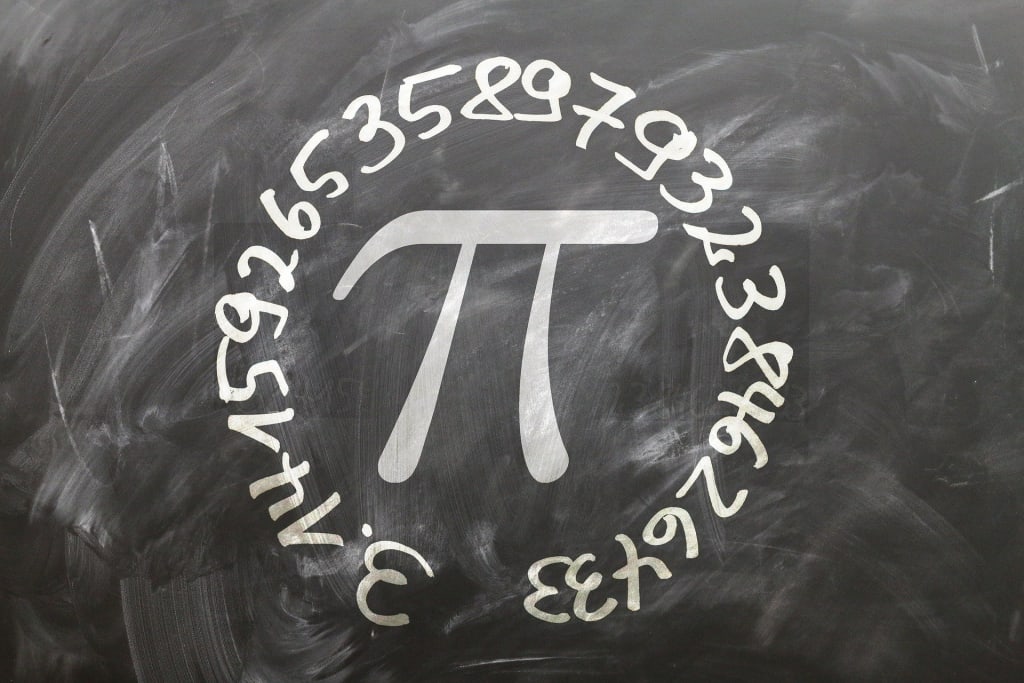International Day of Mathematic - Pi Day and How Pi helps NASA Explore New Planets
Happy Pi Day - 14 March 2023

Pi Day is celebrated every year on March 14th, which is also known as 3/14 in the American date system. It is a day when mathematicians and scientists around the world celebrate the mathematical constant π (Pi), which is used to denote the ratio between a circle’s circumference and its diameter. The approximate value of Pi is 3.14, which is why March 14th is celebrated as Pi Day.
Pi is an incredibly important mathematical constant that is used in a wide range of scientific applications. One of the most interesting uses of Pi is in the work of NASA, the American space agency. NASA uses Pi in a variety of ways to explore and study the universe.
One of the ways in which NASA uses Pi is to map unknown worlds. When spacecraft visit other planets, they make maps that document the processes on the planet, such as how water flows around the globe. As they orbit other planets, spacecraft are creating these maps. However, they have cameras that have rectangular fields of view, which capture images in "bands" on the planet’s surface. To figure out how many images it will take to map an entire planet, scientists use a formula that includes Pi.
Pi is also used in finding new worlds. Powerful telescopes in space and on Earth keep track of the amount of light that distant stars emit. The telescope will notice a decrease in the star's light output when an exoplanet—a planet outside of our solar system—passes by the star. Scientists will use this percentage figure and the formula for the area of a circle to derive the size of the planet that passed in front of the star.
After discovering new exoplanets, one of the most interesting questions is whether those planets can support life as we know it. If they can, they are referred to as "potentially habitable". Scientists use Pi to understand whether exoplanets are habitable. For a planet to be habitable, it needs to be in a "Goldilocks zone," where it is neither too far from the star it is orbiting nor too close. It needs to receive the right amount of heat for life to happen, but too much heat can stop it altogether. Scientists use pi to find out the inner and outer edges of the Goldilocks zone around a particular star. After that, they use Pi and Kepler’s third law to calculate how long a particular exoplanet takes to make one full orbit of a star, which will reveal the planet’s location and whether it is in the Goldilocks zone.
Pi is also helpful when it comes to parachuting on Mars. NASA scientists use Pi to land rovers and landers on Mars. According to the space agency, no Mars landing is exactly the same, but they all have one thing in common: parachutes. When you drop something onto the Martian surface, it is imperative that the object is slowed down with the help of the thin Martian atmosphere. When designing the parachutes that can do this, engineers have to take into account all sorts of things, from the mass and velocity of the spacecraft to the elevation of the landing site and the density of the atmosphere. Pi helps them decide how big the parachute needs to be so that it can generate enough drag to slow down an object’s descent.
Finally, Pi is used in tracking asteroids and comets. Scientists at NASA’s Center for Near-Earth Objects are tasked with the job of determining how fast asteroids and comets are rotating, among other things. Based on observations made from Earth, scientists can estimate how long it takes an object to make one complete rotation on its axis. Using this figure and the formula with Pi, scientists can estimate the angular velocity of the object in question, whether it is an asteroid or comet.
About the Creator
Manpreet Singh Bhinder
I’m a content strategist, Youtuber, Website developer & Expert SEO Analyst. Working hard to grow my skills.
Follow Me - linkfly.to/manpreetsinghbhinder
Creators I Like - Cathy Holmes, Melissa Ingoldsby, Heather Hubler,
Reader insights
Outstanding
Excellent work. Looking forward to reading more!
Top insights
Easy to read and follow
Well-structured & engaging content
Eye opening
Niche topic & fresh perspectives
On-point and relevant
Writing reflected the title & theme







Comments (12)
Eye opening of the wonders of math 🥰
Thanks for sharing your thoughts
Great job and Congratulations on Top Story!!
Very Informative & Great Article, Congratulations on Top Story!
Bravo, and well done. Very interesting indeed!
Whoa, Pi is really awesome. You explained in layman's terms, made for an interesting read.
I am so glad you shared this!!! I only knew a small portion of what you included in this article. I love to learn new things and you explained it all in a very easy to understand way. Congratulations on Top Story!!
Wow. I didn’t know any of this. Great article. I really like he part about the Goldilocks zone.
I had no idea pi is used for all of that! This is absolutely fascinating. Also, Congratulations on your Top Story!
Very informative! I am a big space geek but didn't know the connection between pi and the goldilocks zone. Hope you don't mind, I added a link to this article in my post ...https://vocal.media/poets/pi-day-disaster
I am suddenly in the mood for...pi(e)! Thank you for this one... ;)
Insightful 👍